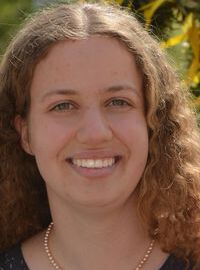*Joint work with Gianluca Brero (University of Zurich) and Benjamin Lubin (Boston University).
Layla Martin(TUM, AdONE): "A Comparison of Different Carsharing Relocation Modes: Classification and Feature-Based Selection"
Rebalancing and relocation in carsharing systems with respect to optimal routing received some attention in recent literature. Most research assumes that workers relocate one vehicle, and then use a bike to continue to the next location, but other modes, including public transport, second drivers, and trucks, exist as well. We study the economic viability of these modes in different environments. We consider a model in which employees of the operators drive vehicles from cold spots to hot spots, and then use bike, car, or public transit to continue to the next cold spot. Alternatively, vehicles can be loaded onto a truck. We formulate the problem as a hybridization of those different modes. The Multi-Mode Carsharing Relocation Problem (M-CRP) is modeled as a flow-based Vehicle Routing Problem (VRP) with multiple synchronization constraints and a heterogeneous fleet. Synchronization occurs among vehicles (every node is visited by at most one vehicle), but also between workers and vehicles (workers require vehicles to reach another location and vice versa). For this model, we present a branch-and-cut algorithm with Variable MIP Neighborhood Descent. Managerially, we observe that selecting the proper mode and in particular integrating different modes allows operators to save substantial costs. We support operators in their decision which mode(s) to choose for their fleet in their given environment and give hints as to which features of the environment (fleet, city …) drive this choice.
Joint Work with Stefan Minner and M. Grazia Speranza
Date: Monday, July 8th , 2019 (starting at 14:30)
Location: Faculty Club (left), IAS Garching

